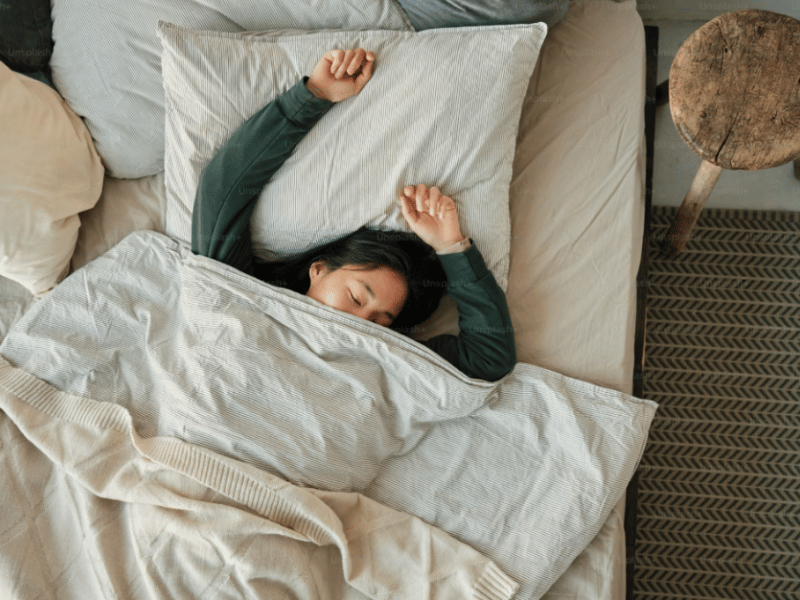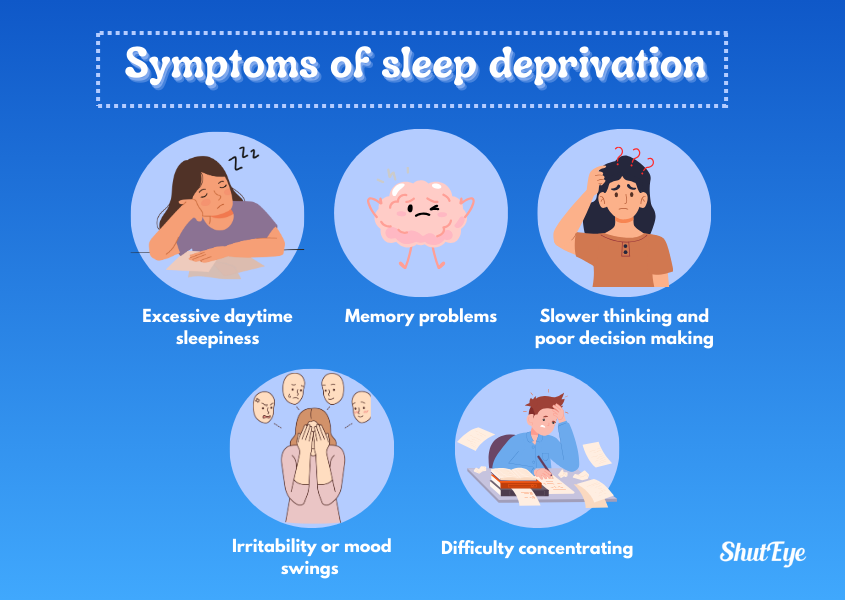


You may wonder, is 6 hours of sleep enough for a student to maintain their academic performance and overall well-being? A good night’s sleep is essential for cognitive performance, physical health, and mental health. Truth is, 6 hours of sleep may not be enough sleep for most college students.
Read on to discover how your sleep duration impacts your academic success, mental health, and overall energy—and learn practical tips to improve your sleep quality for better results!
The National Sleep Foundation recommends that teenagers (13–18 years) get 8–10 hours of sleep, and young adults (18–25 years) need 7–9 hours for optimal performance and overall health [1]. Yet, many students only manage six hours or fewer due to packed schedules, late-night study sessions, and irregular sleep patterns.
Short sleep durations—such as six hours of sleep—can lead to chronic sleep deprivation, disrupting the sleep cycle and causing negative effects on cognitive performance, energy levels, and emotional stability [2].

While six hours of sleep may allow students to get through the day, it often leads to insufficient sleep over time. Chronic sleep deprivation can cause poor sleep quality, leaving students feeling tired, sleepy, and unfocused.
Even with fewer hours, a regular sleep schedule and good sleep hygiene can improve the quality of sleep. However, students may still lack enough deep sleep and REM sleep—essential sleep stages for memory consolidation and emotional regulation [3].
Deep sleep is crucial for physical restoration and energy recovery, while REM sleep supports cognitive functions like learning and problem-solving. With only six hours of sleep, students often fail to achieve enough deep sleep, leading to daytime drowsiness, low energy, and difficulty concentrating.

Sleep deprivation can manifest in various ways, often leaving students feeling persistently tired and unable to focus. Common signs include:
Addressing these signs with healthier sleep habits is essential for maintaining well-being and optimal performance.

To combat the negative effects of short sleep, students can adopt good sleep hygiene and habits to maximize their sleep time:
While the vast majority of students need more sleep, some may feel fine with fewer hours due to genetic factors or efficient sleep cycles. However, this is rare. Most adults and college students require a full night’s sleep to maintain optimal performance, reduce stress, and prevent long-term health issues.
A good night’s rest is crucial for the following:
Six hours of sleep may seem like enough in the short term, but chronic sleep deprivation leads to poor sleep quality, reduced energy levels, and long-term health risks. College students, in particular, should aim for 7–9 hours of sleep a night to support their academic performance and overall well-being.
One way to ensure that you are getting adequate sleep is by using a sleep-tracking app like ShutEye®. ShutEye monitors your sleep patterns and offers recommendations to help you achieve good quality sleep.
Hirshkowitz, M., Whiton, K., Albert, S.M., Alessi, C., & Bruni, O. (2015). National Sleep Foundation’s sleep time duration recommendations: Methodology and results summary. Sleep Health. [online] Available at: https://www.sleephealthjournal.org/article/S2352-7218%2815%2900015-7/fulltext
Lim, J., & Dinges, D.F. (2010). A meta-analysis of the impact of short-term sleep deprivation on cognitive variables. Psychological Bulletin. [online] Available at: https://psycnet.apa.org/doi/10.1037/a0018883
Paruthi, S., Brooks, L.J., D’Ambrosio, C., Hall, W.A., Kotagal, S., Lloyd, R.M., & Malhotra, R.K. (2016). Recommended amount of sleep for pediatric populations: A consensus statement of the American Academy of Sleep Medicine. Journal of Clinical Sleep Medicine. [online] Available at: https://jcsm.aasm.org/doi/10.5664/jcsm.5866
Singh, M., Hall, K.A., Reynolds, A., Palmer, L.J., & Mukherjee, S. (2020). The relationship of sleep duration with ethnicity and chronic disease in a Canadian general population cohort. Nature and Science of Sleep. [online] Available at: https://www.dovepress.com/the-relationship-of-sleep-duration-with-ethnicity-and-chronic-disease--peer-reviewed-fulltext-article-NSS